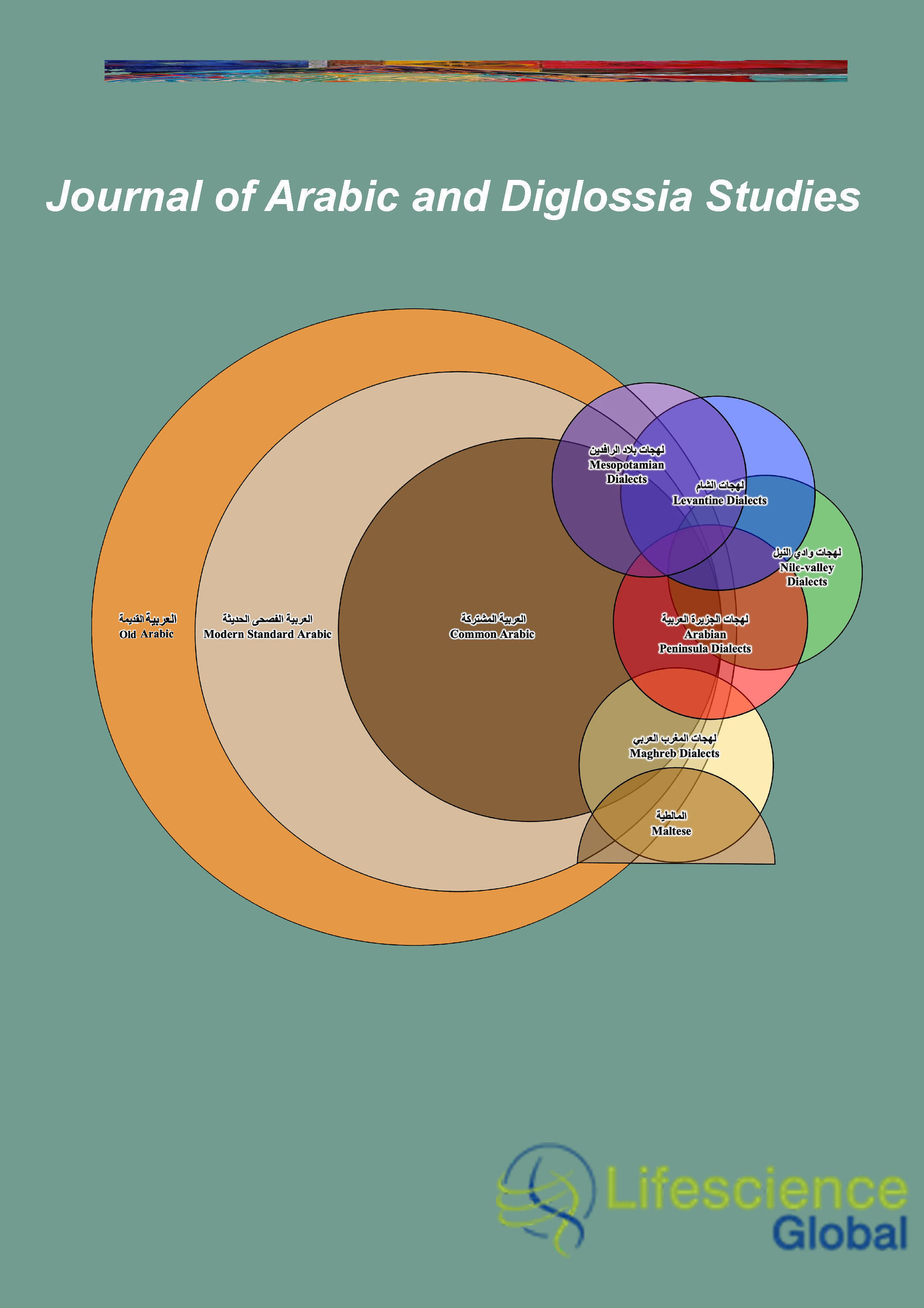
Editor-in-Chief: Rashid Yahiaoui (Qatar) Editor's Profile
Abbreviated key title: J. Arab. Dig. Stud.
ISSN (online):
Published by: Lifescience Global
Periodicity: Continuous, One Volume per Year
contact us for more information
Aims and Scope
The Journal of Arabic and Diglossia Studies (JADS) is a peer-reviewed scholarly publication dedicated to exploring and examining the intricate relationship between the Arabic language and diglossia and their various sociolinguistic, cultural, historical, and pedagogical dimensions. JADS seeks to provide a platform for researchers, linguists, educators, and scholars from diverse disciplines to engage in rigorous academic discourse on topics related to Arabic/diglossia and its broader implications.
Key Areas of Focus
- Diglossic Variation and Communication Patterns: Exploring the communication dynamics between Modern Standard Arabic (MSA) and regional dialects and how diglossia influences speech patterns, discourse structures, and language choice in different contexts.
- Identity Construction and Sociocultural Implications: Investigating how diglossia contributes to forming individual and collective identities and how language preferences shape social interactions, belongingness, and group affiliations.
- Language Variation and Change: Analyzing patterns of linguistic variation and change within both MSA and dialects and investigating factors contributing to language evolution and adaptation.
- Literary Expressions and Cultural Manifestations: Investigating how diglossia influences literary works, oral traditions, media content, and artistic expressions, and its role in shaping cultural continuity and innovation.
- Language Attitudes and Ideologies: Examining societal attitudes and ideologies towards MSA and dialects and how language preferences reflect broader social, political, and economic dynamics.
- Language Technology and Digital Media: Exploring the role of diglossia in digital communication, social media platforms, and language technology development, and its implications for language representation and analysis.
- Intercultural Communication and Globalization: Investigating how diglossia affects cross-cultural interactions, linguistic accommodations, and the challenges posed by globalization in terms of language use and identity negotiation.
- Translation and Intercultural Communication: Exploring the role of diglossia in translation practices, examining challenges and strategies for translating between MSA and dialects, and its impact on fostering intercultural understanding.
- Language Contact and Borrowing: Investigating linguistic borrowing and code-switching between MSA and dialects and the linguistic outcomes of contact with other languages within the Arab-speaking context.
- Educational Insights and Pedagogical Strategies: Examining the impact of diglossia on language education methodologies, curriculum design, and pedagogical practices, and identifying effective approaches for teaching both MSA and dialects.




